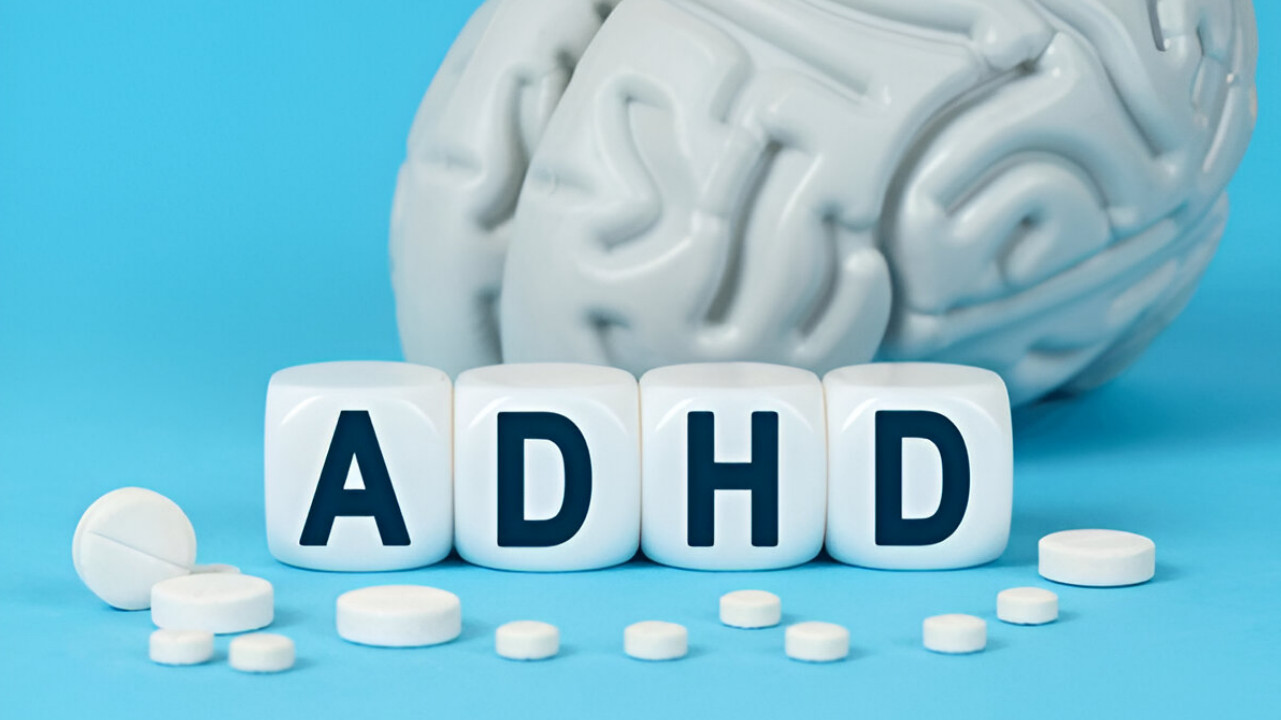Understanding ADHD in Adults
ADHD is a neurodevelopmental disorder characterized by persistent patterns of inattention, hyperactivity, and impulsivity that can significantly impair daily functioning. While ADHD is commonly diagnosed in childhood, it is estimated that around 60% of individuals with ADHD continue to experience symptoms into adulthood.
Challenges Faced by Adults with ADHD
Adults with ADHD often face a range of challenges that can impact their personal and professional lives. These may include difficulties with organization, time management, focused attention, and impulse control. Additionally, adults with ADHD may struggle with emotional regulation, interpersonal relationships, and self-esteem.
The Prevalence of Hearing Loss in Adults
Hearing loss is a common health issue that affects millions of people worldwide. While often associated with aging, hearing impairment can occur at any stage of life due to various factors, including genetic predispositions, noise exposure, certain medical conditions, and injuries.
Types of Hearing Loss
There are three main types of hearing loss: conductive, sensorineural, and mixed. Conductive hearing loss occurs when sound waves are blocked from reaching the inner ear, often due to issues with the outer or middle ear. Sensorineural hearing loss is caused by damage to the hair cells in the inner ear or the auditory nerve, making it difficult for the brain to process sound. Mixed hearing loss involves both conductive and sensorineural components.
The Connection Between ADHD and Hearing Loss
Recent research has revealed a potential link between ADHD and hearing loss in adults. While the exact mechanisms underlying this connection are not fully understood, several factors may contribute to this association.
Inattention and Auditory Processing
One potential explanation for the link between ADHD and hearing loss is the role of inattention and auditory processing. Individuals with ADHD often experience difficulties with sustained attention and auditory information processing, which can lead to challenges in recognizing and interpreting auditory cues. This, in turn, may contribute to a higher risk of developing hearing impairments or exacerbating existing ones.
Comorbidities and Risk Factors
There may be shared risk factors and comorbidities that contribute to the association between ADHD and hearing loss. For example, individuals with ADHD are more likely to engage in impulsive behaviors, which may increase their exposure to loud noises or activities that can damage hearing over time. Additionally, certain medical conditions that are more prevalent in individuals with ADHD, such as cardiovascular disease or diabetes, can also increase the risk of hearing impairment.
Addressing Hearing Loss in Adults with ADHD
Given the potential connection between ADHD and hearing loss, it is crucial for healthcare professionals and individuals with ADHD to be aware of this association and take proactive steps to address hearing-related issues.
Early Screening and Intervention
Regular hearing screenings and early intervention are essential for adults with ADHD. Healthcare providers should be vigilant in assessing hearing function during routine check-ups and refer individuals for comprehensive audiological evaluations if any concerns arise. Early detection and treatment of hearing loss can significantly improve quality of life and prevent further deterioration.
Assistive Technologies and Accommodations
For individuals with ADHD who experience hearing loss, access to assistive technologies and accommodations can be invaluable. Hearing aids, cochlear implants, and other assistive devices can help amplify sound and improve auditory perception. Additionally, accommodations such as closed captioning, assistive listening devices, and communication strategies can facilitate better communication and comprehension.
The Impact of Medication on ADHD and Hearing Loss
Interestingly, research has also explored the potential role of ADHD medications in mitigating the risk of cognitive impairment, including hearing loss. Certain stimulant medications used to treat ADHD, such as methylphenidate (Ritalin) and amphetamines (Adderall), have been associated with a reduced risk of developing dementia and cognitive decline.
Neuroprotective Effects of ADHD Medications
ADHD medications have been shown to have neuroprotective effects, which may contribute to preserving cognitive function and potentially mitigating hearing loss. These medications work by increasing the availability of neurotransmitters like dopamine and norepinephrine, which play crucial roles in attention, executive function, and auditory processing.
Considerations for Medication Management
While the potential neuroprotective effects of ADHD medications are promising, it is important to note that medication management should always be carefully monitored by a healthcare professional. Individuals with ADHD should discuss the potential benefits and risks of medication with their providers and follow prescribed dosages and treatment plans.
A Multidisciplinary Approach to ADHD and Hearing Loss
Addressing the connection between ADHD and hearing loss requires a comprehensive and multidisciplinary approach that involves a team of healthcare professionals, including psychiatrists, audiologists, speech-language pathologists, and occupational therapists.
By raising awareness of this association, promoting early screening and intervention, and leveraging advancements in assistive technologies and medication management, individuals with ADHD can receive the support they need to navigate the challenges of hearing loss and maintain optimal cognitive function throughout their lives.
FAQs
What is the connection between ADHD and hearing loss in adults?
Recent research has revealed a potential link between ADHD and hearing loss in adults. Factors like inattention, auditory processing challenges, shared risk factors, and comorbidities may contribute to this association.
How can hearing loss in adults with ADHD be addressed?
Healthcare professionals and individuals with ADHD should be aware of this potential connection and take proactive steps to address hearing-related issues. Early screening, intervention, assistive technologies, and accommodations can help improve quality of life and prevent further hearing deterioration.
Can ADHD medications help mitigate the risk of cognitive impairment, including hearing loss?
Certain stimulant medications used to treat ADHD, such as methylphenidate (Ritalin) and amphetamines (Adderall), have been associated with a reduced risk of developing dementia and cognitive decline. These medications may have neuroprotective effects that can potentially help preserve cognitive function and mitigate hearing loss.
What are the considerations for medication management in individuals with ADHD and hearing loss?
While ADHD medications may have potential neuroprotective effects, medication management should always be carefully monitored by a healthcare professional. Individuals with ADHD should discuss the benefits and risks of medication with their providers and follow prescribed dosages and treatment plans.
What is a multidisciplinary approach to addressing ADHD and hearing loss?
Addressing the connection between ADHD and hearing loss requires a comprehensive and multidisciplinary approach involving a team of healthcare professionals, including psychiatrists, audiologists, speech-language pathologists, and occupational therapists. This collaborative approach can provide comprehensive support and treatment to individuals navigating these challenges.
Disclaimer: This article is for informational purposes only and does not constitute medical advice. Always consult with a healthcare professional before starting any new treatment regimen.
Related Coverage
Yes, primary care doctors can diagnose ADHD and prescribe medications like Adderall. Learn about discussing symptoms, treatment goals, getting a prescription....
The Adderall shortage is making getting prescriptions difficult without insurance. Here are tips for working with your doctor, finding discounts, using prescription savings plans, and more....
If your child excessively jumps on things and can't sit still, it could signify ADHD - but also may just be normal behavior. Learn how to evaluate when fidgety actions require further assessment....
Adderall shortages make getting prescriptions difficult. This guide covers pharmacy locator tools, therapeutic alternatives, provider communication, and unmedicated ADHD coping strategies....
Wondering about ADHD testing costs? Get the scoop on prices, insurance tips, and affordable options in this friendly, easy-to-read guide!...
Get clear answers about genetic testing for autism cost, insurance coverage, and what to expect. Find out how much testing really costs for families....
The ongoing Adderall shortage has made getting prescriptions difficult. Here's guidance on seeking alternative medications, non-drug therapies, and assistance programs....
Explore the potential benefits of a gluten-free diet for children with ADHD. Learn about the connection between gluten and ADHD symptoms, and get practical tips for implementing a balanced, gluten-free lifestyle....
Find out how ADHD military eligibility works, waiver options, branch differences, and steps to prove you're fit for service....
Struggling with ADHD reading difficulties? Find practical strategies, tools, and tips to improve focus, comprehension, and enjoyment while reading....









